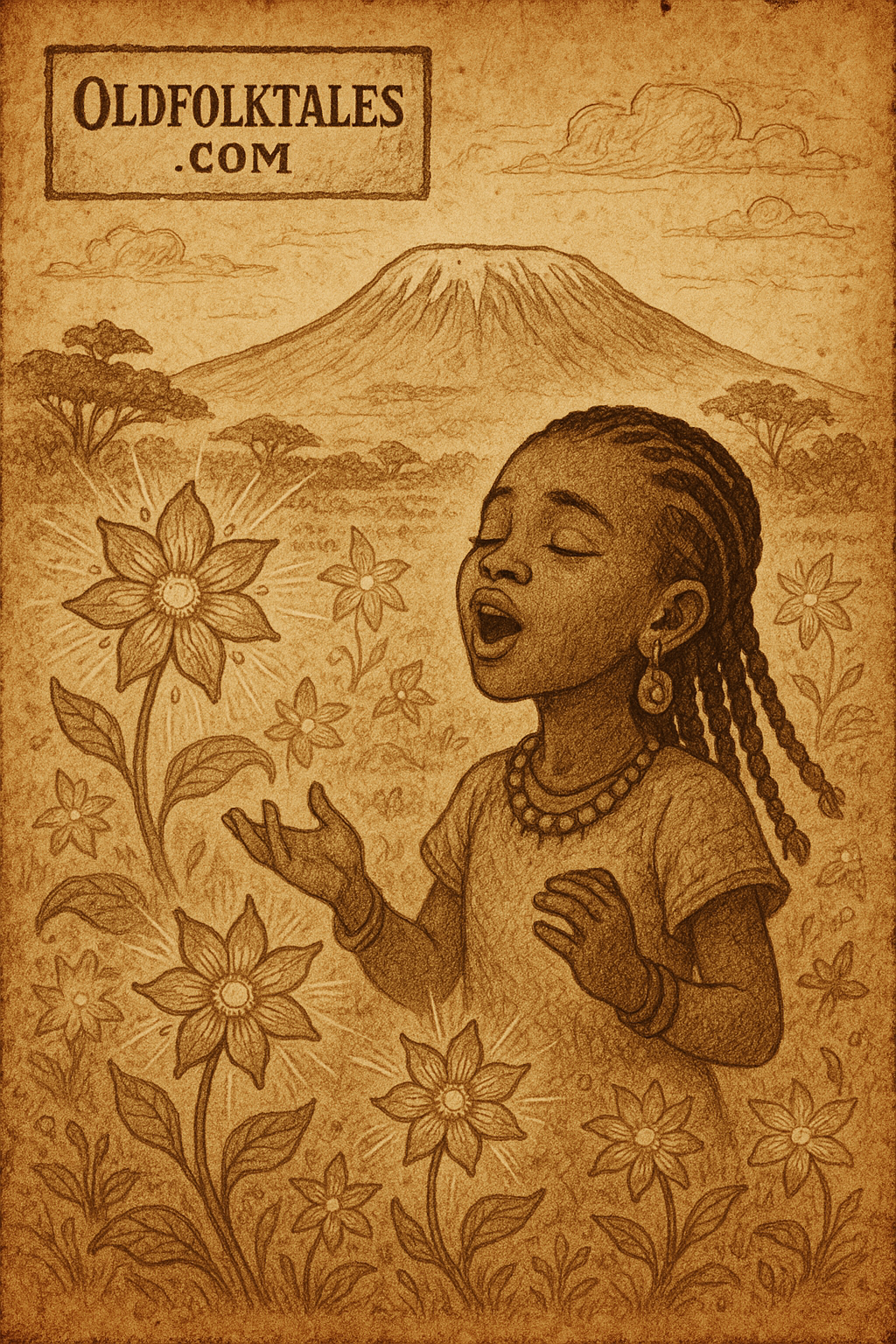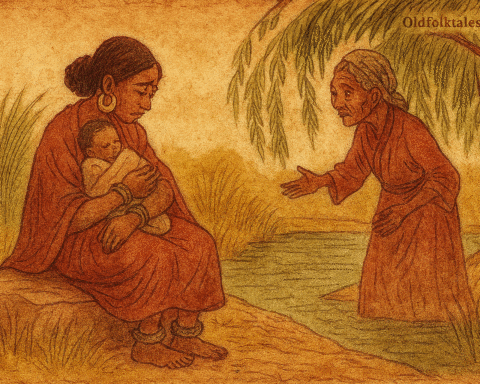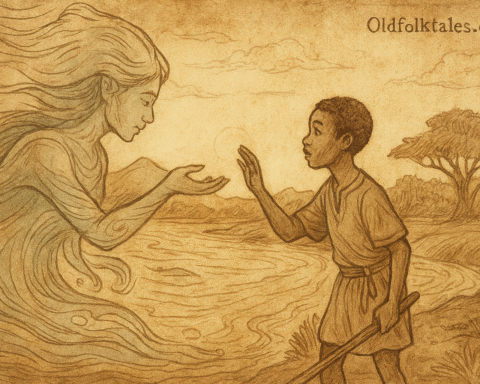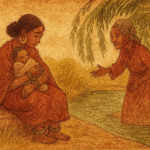In a small village nestled between the rolling hills and the great river, lived a young girl named Nia. From the day she was born, the elders noticed something extraordinary about her, when Nia sang, the birds would pause mid-flight, the wind would soften, and even the grumpy old baobab trees seemed to lean in closer to listen. Her voice was said to be magic, a gift from the river spirits who watched over their people.
But the village was not always peaceful. For many seasons, the land had suffered from a terrible drought. The crops withered beneath the scorching sun, the river’s flow slowed to a trickle, and the people grew desperate. The chief called for the council to find a way to bring back the rains, but none could find a solution.
One evening, as the orange sun dipped behind the hills, Nia sat by the riverbank, her heart heavy with worry. She began to sing softly, a melody her mother had taught her an ancient song that spoke of rain and renewal. As her voice floated through the air, the first drops of rain began to fall. But just as the villagers celebrated, a fierce wind swept the clouds away, and the rain stopped.
The drought was not yet over. The elders told Nia that the spirits were testing her and the village. To bring the rains back fully, she must journey to the top of the Sacred Hill, where the Sky Spirit lived. There, she must sing the song that called the rains and prove her courage.
Determined, Nia set out at dawn. The path to the Sacred Hill was steep and rocky, lined with thorny bushes and strange shadows. Along the way, she met a wise old tortoise who warned her, “The journey is not just about strength, but about believing in your gift and trusting the spirits.”
As Nia climbed higher, the wind grew colder, and the sky darkened. At the peak, the Sky Spirit appeared as a glowing figure wrapped in clouds. “Why have you come, child?” the Spirit asked.
“I have come to bring rain to my village,” Nia replied, steadying her voice despite the cold and fear. “With this song, I ask for your blessing to heal the land.”
The Sky Spirit smiled and said, “Then sing, and let your heart guide your voice.”
Nia closed her eyes and sang with all her might. Her voice rose like the river’s roar, soft as the first rain on dry earth, and strong as the thunder that breaks the silence. The clouds gathered and thickened. Lightning flashed, and soon the sky opened wide, pouring life-giving rain over the hills and valleys.
The drought ended, and the land blossomed. Nia returned to her village a hero, but she remained humble, knowing her true gift was not just her voice but her courage to use it. From then on, whenever the skies grew dark and the rains delayed, the people would call on Nia to sing, trusting that her magic voice would bring hope and renewal.
Moral Lesson
The Girl with the Magic Voice teaches us that true strength lies within the courage to believe in ourselves and use our gifts for the good of others. Sometimes, the hardest journeys lead to the greatest blessings. By facing our fears and trusting our talents, we can bring hope even in the darkest times.
Knowledge Check
1. What is the main message of The Girl with the Magic Voice folktale?
The story highlights the power of courage and self-belief in using one’s gifts to help others.
2. How does Nia’s singing affect the natural world in the story?
Her singing calls the rain and softens the winds, showing the magic of her voice.
3. What challenge does Nia face to bring the rains back?
She must journey to the Sacred Hill and sing to the Sky Spirit, proving her bravery and faith.
4. What advice does the tortoise give to Nia during her journey?
The tortoise tells her that the journey requires strength and trust in her gift and the spirits.
5. How does the community respond to Nia’s gift and actions?
They celebrate her as a hero and rely on her voice to bring hope in difficult times.
6. What cultural elements are present in The Girl with the Magic Voice folktale?
The tale reflects African beliefs in spirits, nature’s power, oral storytelling, and respect for courage.
Cultural Origin: East African folktale inspired by river and sky spirit traditions






